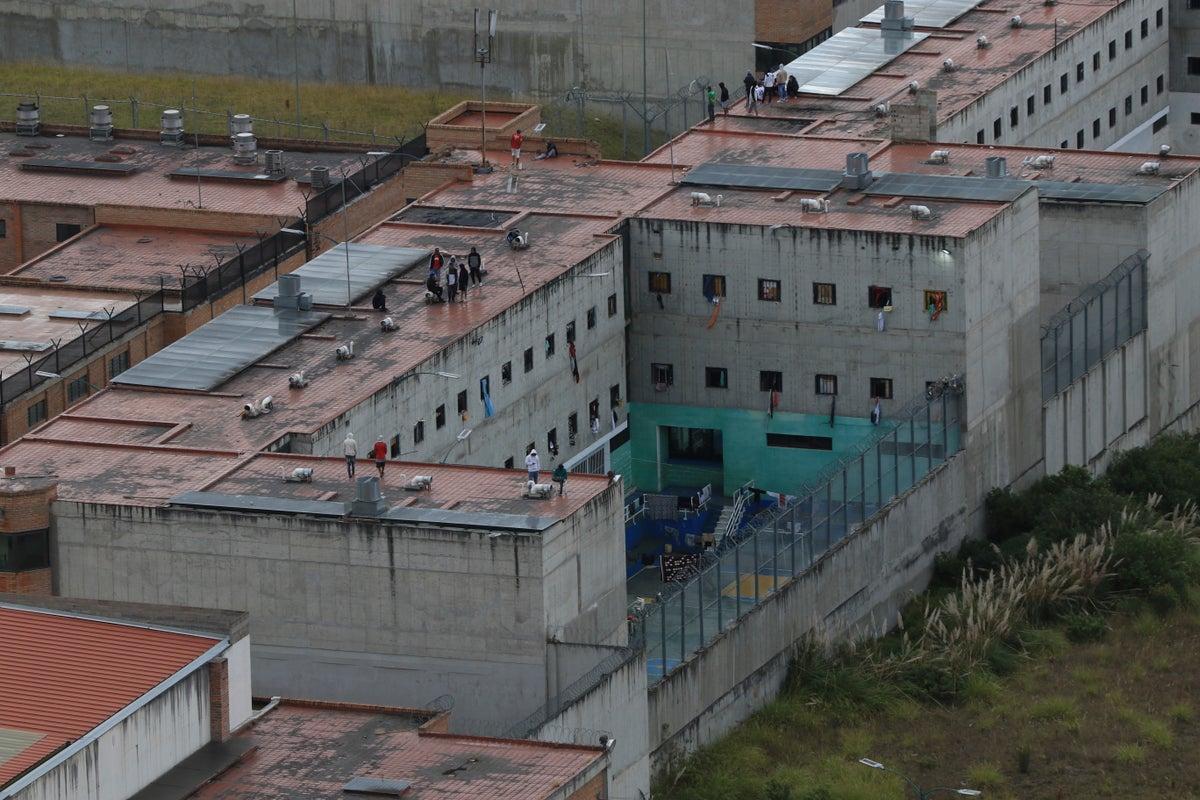
Inmates involved in a hostage takeover at six prisons in Ecuador have released 50 guards and seven police officers during the 24-hour standoff.
The 57 released hostages were returned unharmed after the prison riot, which was led by criminal gangs responding to several police and military raids on prisons in recent days, including a search for weapons at one of the country’s biggest jails.
“The measures we have taken, especially in the prison system, have generated violent reactions from criminal organisations that seek to intimidate the state,” president Guillermo Lasso said on X, formerly Twitter, on Friday night.
In the Latacunga prison, about 55 miles (88km) south of Quito, the police and the military found 49 knives and 2 bulletproof vests during a raid, according to El Comentario.
A young offenders facility in Virgilio Guerrero was among the six facilities involved in the violence, and the centre was badly damaged in an arson attack.
It comes as gangs in Ecuador used explosives to damage a bridge linking two cities in the coastal province of El Oro, the latest in a series of attacks this week that saw four car bombs and three explosive devices rip across the country in less than 48 hours.
A domestic gas tank with wads of dynamite attached exploded under a different bridge in Napo province of Napo, located within Ecuador‘s portion of the Amazon rainforest.
Security analyst Daniel Pontïn said the chain of events, which took place three weeks after the slaying of presidential candidate Fernando Villavicencio was a “systematic and clearly planned” attack that had shown the state was ineffective in preventing violence.
Inmates in six prisons in Ecuador have released 50 guards and seven police officers who had been taken hostage— (AFP via Getty Images)
The 24-hour standoff was led by criminal gangs responding to several police and military raids on prisons— (AFP via Getty Images)
“What does state intelligence do in these situations? It has not done anything, although the orders (for explosions) surely come from the prisons through cellphones,” he said.
It comes as Ecuador is less than two months away from electing a president.
“The issue is that we are seeing an escalation of the problem, and given the level of incompetence of the state, later we can expect attacks against the population,” Mr Pontïn said. “It is a predictable scenario that would be terrible.”
Police inspect a truck that exploded outside an office used by the government's National Service for Attention for People Deprived of Liberty (SNAI), which runs the jail system, in Quito— (AP)
The series of explosions began Wednesday night, when a car bomb exploded in Quito, Ecuador‘s capital, in an area where an office of the country’s corrections system was previously located.
Two other car bombs then went off in El Oro province, which is in the country’s southwest.
Another vehicle in Quito exploded Thursday, this one outside the corrections system’s current offices.
An explosive device also went off in Cuenca, located in southern Ecuador‘s Andes mountains. A judge ordered six people suspected of involvement in the capital blasts kept in custody while an investigation continued.
Additional reporting by AP.







